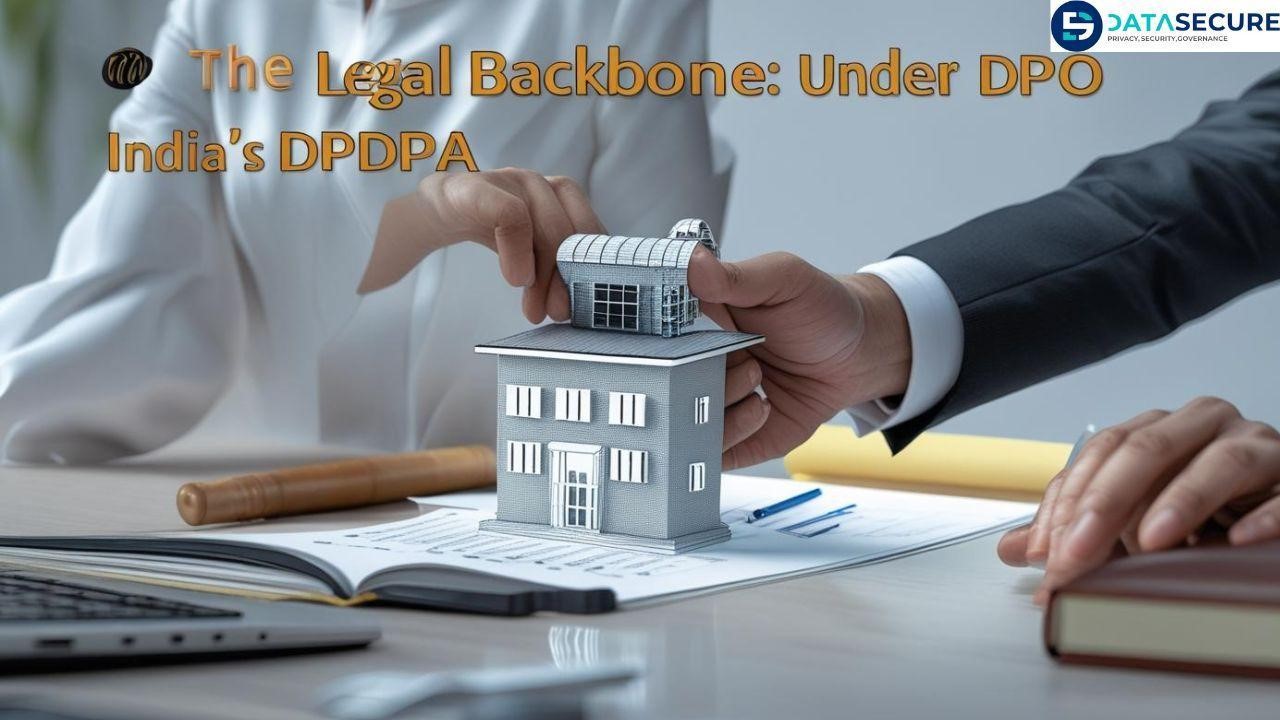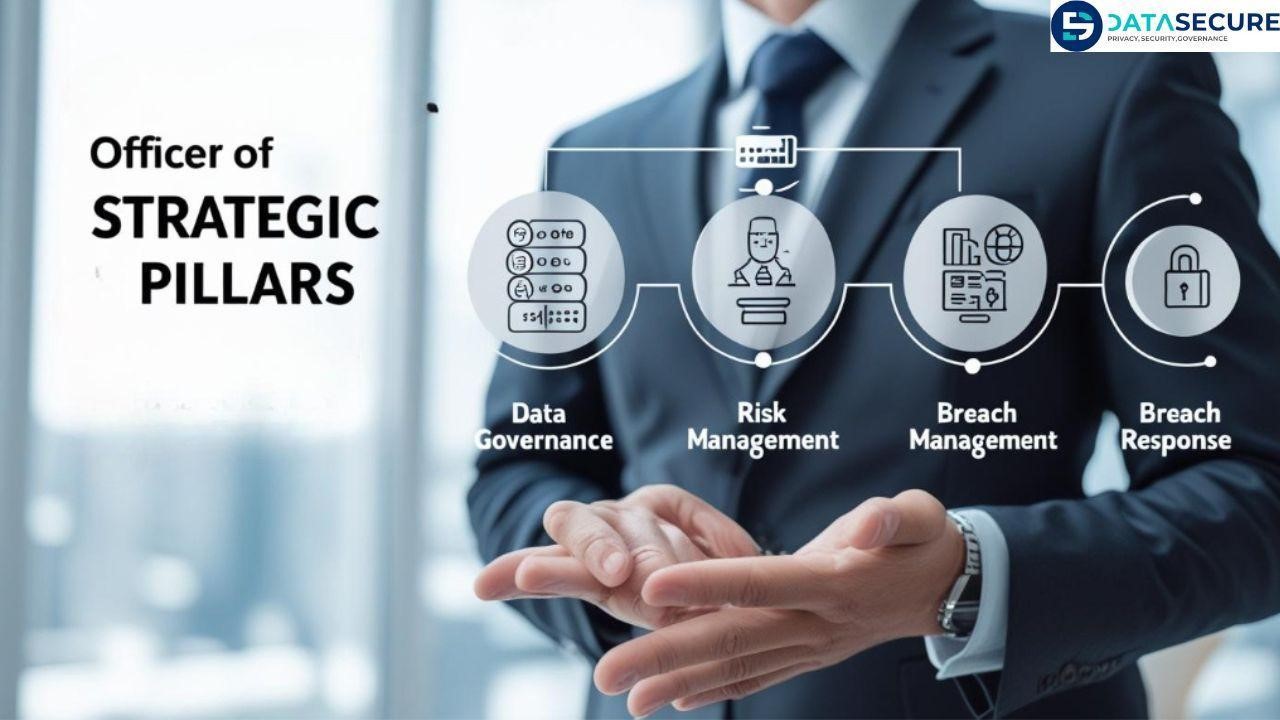Introduction

With the enactment of the India’s Digital Personal Data Protection Act, 2023 (DPDPA), India has entered a defining chapter in its digital governance journey. As data emerges as a central economic and social asset, businesses must be held accountable for how they collect, store, use, and share personal data. Central to this accountability is the Data Protection Officer (DPO)—a role that is evolving rapidly from one focused narrowly on compliance to a broader, more strategic function that drives privacy-centric culture across enterprises.
This article explores the multifaceted role of the DPO in Indian organizations, tracing its evolution from regulatory compliance to ethical leadership, risk governance, and cultural transformation.
1. The Legal Backbone: DPO under India’s DPDPA

The DPDPA, 2023 lays down the foundational rules for personal data processing in India. One of its key innovations is the formal recognition of the Data Protection Officer (DPO) for Significant Data Fiduciaries (SDFs).
Who Must Appoint a DPO?
As per Section 10(2) of the DPDPA, the Central Government will notify classes of Data Fiduciaries as ‘Significant Data Fiduciaries’ based on:
- Volume and sensitivity of personal data processed,
- Risks to the rights of data principals,
- Impact on sovereignty and integrity of India,
- Use of new technologies such as AI and IoT,
- Risk to electoral democracy and public order.
SDFs are mandated to appoint a DPO, who:
- Must be based in India,
- Is the point of contact for grievance redressal,
- Reports to the Board of Directors or governing authority,
- Ensures organizational compliance with the DPDPA and its Rules.
Although the DPO is mandated only for SDFs, many forward-thinking businesses are voluntarily appointing DPOs in anticipation of regulatory scrutiny and reputational risk.
2. DPO: Compliance Custodian or Strategic Leader?
Initially, the DPO’s role focused on tactical compliance tasks:
- Drafting privacy policies and notices,
- Monitoring consent management,
- Managing access requests and grievances,
- Ensuring lawful basis for processing,
- Coordinating breach notifications.
However, in today’s complex data ecosystems, such activities are necessary but not sufficient. Modern DPOs in India are expected to:
- Interpret the DPDPA and global data laws in context,
- Embed privacy by design in product and service development,
- Advise on ethical data use in emerging technologies (AI/ML, biometrics),
- Align data practices with business and brand strategy.
From Gatekeeper to Enabler
A DPO must no longer be seen as a “gatekeeper” who says "no" to data initiatives. Instead, they are enablers—helping teams achieve innovation within lawful and ethical boundaries.
3. The Strategic Pillars of the DPO’s Role

To make a sustained impact, Indian DPOs must operate across five strategic pillars:
a. Legal and Regulatory Stewardship
The DPO must have command over:
- India’s DPDPA and delegated rules,
- Sectoral laws (e.g., RBI’s IT Directions, IRDAI’s data regulations),
- Global privacy laws (EU GDPR, UAE PDPL, Singapore PDPA).
With increasing cross-border data flows, Indian firms—especially in IT, healthcare, and fintech—face growing expectations to meet international adequacy standards. The DPO becomes the legal bridge between global clients and Indian operations.
b. Risk Governance
Privacy risks are no longer limited to penalties. They include:
- Reputational damage, especially in consumer-facing sectors,
- Loss of trust among customers and investors,
- Operational disruptions during investigations and class actions.
The DPO leads Data Protection Impact Assessments (DPIAs), monitors data flows, and evaluates vendor practices. Risk registers and privacy dashboards are key tools for such governance.
c. Data Ethics and Digital Responsibility
Compliance with the letter of the law is no longer enough. Stakeholders now expect companies to act ethically, even in legal gray zones.
For example, a fitness app legally collecting health data must also assess:
- Whether the consent was informed and meaningful,
- Whether algorithms may be causing discriminatory profiling,
- Whether users understand the inferences being drawn.
d. Privacy by Design (PbD)
The DPDPA encourages Privacy by Design, though not explicitly mandating it. The DPO should operationalize PbD through:
- Integration into SDLC (software development lifecycle),
- Privacy engineering checklists for developers,
- Data minimization and pseudonymization strategies,
- Consent UX (user experience) guidance.
A good DPO partners with product teams to ensure data protection is a built-in feature, not a last-minute patch.
e. Incident Response and Resilience
Data breaches and cybersecurity events are inevitable. The DPO must:
- Define response protocols,
- Coordinate with CISOs and IT teams,
- Notify the Data Protection Board of India,
- Maintain records of corrective actions.
In case of investigations, the DPO serves as the first point of contact for regulators and is often tasked with managing evidence, timelines, and disclosures.
4. Culture Creation: The DPO’s Invisible Legacy
Why Culture Matters
A privacy policy on paper is meaningless unless employees practice privacy in reality. The DPO is a change agent, influencing behaviours, mindsets, and decision-making culture.
A strong privacy culture:
- Reduces breaches and insider threats,
- Enhances employee accountability,
- Improves consumer trust.
| Mechanism | Impact | ||
|---|---|---|---|
| Executive Alignment | C-Suite endorsement of privacy goals through internal messaging | Contextual Training | Role-based modules for sales, IT, HR, product teams |
| Privacy Champions Network | Nominated employees to serve as privacy points in each function | ||
| Gamification and Nudges | Regular micro-learnings, quizzes, and reminders to reinforce good habits | ||
| Internal Campaigns | Celebrating Data Privacy Day, launching “Ask Your DPO” initiatives | ||
| Metrics for Culture |
DPOs can use culture indicators such as:
- Number of privacy concerns reported internally,
- Training completion rates,
- Employee survey scores on privacy awareness,
- Data handling non-conformities flagged in audits.
5. Challenges in the Indian Landscape
Despite their evolving role, DPOs in India face unique structural and systemic challenges:
>b>a. Lack of Regulatory Precedent
As of June 2025, the Data Protection Board of India is yet to issue significant enforcement decisions, leading to interpretive uncertainty.
b. Diversity in Business Maturity
While multinationals may already have privacy frameworks, Indian SMEs and startups often lack:
- Formal policies and RoPAs (Records of Processing Activities),
- Consent tracking tools,
- Awareness of processing bases and cross-border restrictions.
c. Budget and Resource Constraints
Hiring certified privacy professionals is expensive. Some firms are outsourcing the DPO role or appointing someone with dual responsibilities (e.g., legal + DPO), which could raise conflict-of-interest concerns.
d. Technological Complexity
With increasing adoption of cloud platforms, AI tools, and third-party APIs, data environments are growing opaque. DPOs must rely on data discovery and classification tools, and develop close partnerships with IT and DevSecOps teams.
6. Global Alignment: DPOs Must Think Beyond Borders

Indian businesses processing data of EU citizens, or collaborating with international partners, must also align with:
- EU’s GDPR (General Data Protection Regulation),
- Singapore’s PDPA,
- UAE’s PDPL, and
- Cross-border adequacy frameworks (SCCs, BCRs).
This calls for a DPO who understands global obligations, can map data flows across jurisdictions, and supports data transfer risk assessments (TRAs).
7. Skills Indian DPOs Must Build
As expectations grow, the DPO role demands a cross-functional skillset:
| Domain | Specific Skills |
|---|---|
| Legal | >DPDPAGDPR, sectoral laws, contract drafting (DPA, SCCs) |
| Technical | Data mapping, AI governance, DPIA, cybersecurity collaboration |
| Operational | Program management, vendor risk assessments, training programs |
| Strategic | Board-level reporting, business alignment, stakeholder comms |
| Ethical | Human-centric thinking, privacy by design, non-discrimination |
Certifications such as DCPP, CIPP/E, CIPM, or CDPO (India) are highly recommended.
8. Recommendations for Indian Companies
- Appoint a DPO proactively, not reactively.
- Empower the DPO with independence, resources, and direct reporting lines.
- Conduct regular audits and risk assessments with DPO oversight.
- Develop a cross-functional privacy governance council led by the DPO.
- Invest in automation (e.g., RoPA tools, consent managers, DPIA workflows).
- Support continuous learning for your DPO and privacy team.
Conclusion: The DPO as a Culture Catalyst
The Data Protection Officer is no longer a passive bystander to digital transformation. In India's data-driven economy, the DPO is an essential architect of trust, resilience, and responsibility. As DPDPA compliance becomes a baseline, it is culture, not just checklists, that will define an organization's maturity.
By embracing this wider role, DPOs can become trusted advisors, strategic partners, and ethical leaders—embedding privacy not only in code and contracts, but in the conscience of the enterprise.
We at DataSecure (Data Privacy Automation Solution) DATA SECURE - Data Privacy Automation Solution can help you to understand EU GDPR and its ramificationsand design a solution to meet compliance and the regulatoryframework of EU GDPR and avoid potentially costly fines.
We can design and implement RoPA, DPIA and PIA assessments for meeting compliance and mitigating risks as per the requirement of legal and regulatory frameworks on privacy regulations across the globe especially conforming to GDPR, UK DPA 2018, CCPA, India Digital Personal Data Protection Act 2023. For more details, kindly visit DPO India – Your outsourced DPO Partner in 2025 (dpo-india.com).
For any demo/presentation of solutions on Data Privacy and Privacy Management as per EU GDPR, CCPA, CPRA or India DPDP Act 2023 and Secure Email transmission, kindly write to us at info@datasecure.ind.in or dpo@dpo-india.com.
For downloading the various Global Privacy Laws kindly visit the Resources page of DPO India - Your Outsourced DPO Partner in 2025
We serve as a comprehensive resource on the Digital Personal Data Protection Act, 2023 (DPDP Act), India's landmark legislation on digital personal data protection. It provides access to the full text of the Act, the Draft DPDP Rules 2025, and detailed breakdowns of each chapter, covering topics such as data fiduciary obligations, rights of data principals, and the establishment of the Data Protection Board of India. For more details, kindly visit DPDP Act 2023 – Digital Personal Data Protection Act 2023 & Draft DPDP Rules 2025
We provide in-depth solutions and content on AI Risk Assessment and compliance, privacy regulations, and emerging industry trends. Our goal is to establish a credible platform that keeps businesses and professionals informed while also paving the way for future services in AI and privacy assessments. To Know More, Kindly Visit – AI Nexus Home|AI-Nexus